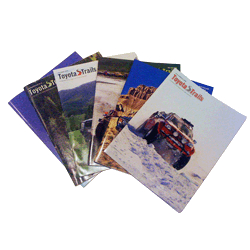By Tony K
 Learned more about motor oil in the last few days that I ever really wanted to know. What I was really trying to find out was, what oil should I run in my motor, how often should it need to be changed, can I improve the performance of the lubrication system, etc. Some of my questions got answered and some just created more questions. If you thought oil was simple, think again. Hopefully this will give you a basic understanding of that slippery stuff you dump into your engine.
Learned more about motor oil in the last few days that I ever really wanted to know. What I was really trying to find out was, what oil should I run in my motor, how often should it need to be changed, can I improve the performance of the lubrication system, etc. Some of my questions got answered and some just created more questions. If you thought oil was simple, think again. Hopefully this will give you a basic understanding of that slippery stuff you dump into your engine.
And for my purposes this is only about petroleum based motor oil, synthetics are something else all together and at typically 2 to 3 times the cost of traditional liquid dinosaur, a bit out of my budget. Besides 15w-40 dino oil got me 310,000 miles so far so it can’t be all bad.
–Viscosity-
I guess it would be best to start with the most basic of terms. And this one is one of my first surprises. Viscosity is the resistance of a fluid to flow. Not exactly what I was expecting to hear about the fluid that is supposed to flow through my engine. In other words, high viscosity equals little flow and a low viscosity means it flows easier.
-Multi-weight Oils-
Just what does the label on your favorite oil mean? Bottle markings are actually a grade not a weight rating. And the numbers don’t correlate to any scientific test either, somewhere along the line these numbers were chosen to give us something to go by when choosing a particular product. At least that is my story and I am sticking to it.
I use 15w-40 in my diesel so what this means to me is that they start with a 15 grade base oil and add viscosity modifiers (polymers) to create an oil that acts like a 40 grade at operating temperature. And this is the principle behind all mineral oil based multi-weight oils, synthetic oils are a different story. The W stands for winter or cold weather if you want to get picky. They use a 15 grade to start with as it makes it easier for the motor to start with a lighter oil but operate with the equivilent of a 40 grade at operating temps.
-Straight Weight-
There are very few vehicles that benefit from straight weight oils, not counting race cars and industrial equipment. While straight weight is great in a hot engine or one that runs constantly, put it in a typical daily driver and it will cause more harm than good. Cold 40 weight is really thick and on start up it will increase the time it takes your motor to build up pressure which is not at all good for the internals. Which is exactly why I removed the 40 weight from my motor. I had put it in to try and increase a low pressure at idle but it took far to long to build pressure at start up when cold.
-Temperature Effects-
Oil works the best at operating temperatures, typically 212 degrees in our engines. Too hot is bad but so is too cold. Get it too hot and it loses viscosity but use it too cold and it is difficult to push through the engine. On a side note, what most of us do not realize is that our engines operate at the same temp, winter and summer. A bit of food for thought.
Multiweight oils use viscosity modifiers (polymers) to get the heavier ratings listed on the bottle. Get these too hot and they will breakdown and you lose the heavier qualities of the oil. Essentially once you have cooked the polymers you would be running 15 grade oil if you use 15w-40 like I do.
-Oil Changes and Dirty Oil-
The base oil used in our engines doesn’t really break down, but like I mentioned already, the additives will. This is why regular changes are necessary. How often you change your oil is a bit of a gray area. Heavy use requires more frequent changes but even no use requires you to change the oil. Oil just sitting in your engine will actually get thicker. While overuse of a multi-weight oil will cause it to get thinner. But in reality the only way to actually determine how often to change your oil is through oil analysis. Oil analysis will tell you exactly what is happening inside your engine, whats wearing, are you going too long between changes, is there a coolant leak into the oil etc.
Black oil is not necessarily a bad thing. Modern motor oils contain additives that hold dirt and particles in suspension so that the filter can remove them if they are big enough. Many of them are so small that they go right through the filter and have no ill effects on your bearings etc. When it really becomes an issue is when the oil will no longer hold additional particles and then it is time to change the oil. And oil analysis will tell you exactly when this occurs. Besides if I changed the oil in my 3B as soon as it turned dark, even black, I would be changing it once a week. This motor is notorius for going black in a hurry.
-Start Up-
According to most sources, start up is hard on your engine. Claims of 90% of your engines wear occurs on start up are out there (but I have yet to find the solid proof that this is indeed true). But what I do know is true that heavier oils are harder on your engine on start up. It takes longer for the oil to get pushed through the engine, starters have to work harder, alternators have to charge batteries longer etc. This is the reason pretty much every vehicle made today reccomends a multi-weight oil. The low rating makes it easier for your engine to start when it’s cold and more so when the temps outside dip down.
-Engine Oil Pressure-
Basically the oil pressure in your engine helps keep metal parts from rubbing up against each other. But high pressure also equates to less flow through the system and a high flow through the system improves cooling.
But high pressures can also indicate a blockage or restriction or even the use of an oil with too heavy of a rating. The last one will read high because it is harder to push a heavy oil through the tight tolerances of the bearings and surfaces. The first two because its harder to push any fluid through small or restricted spaces, think about a flowing garden hose, block the end without cutting off the flow and the pressure goes up. You haven’t done anything to improve the volume of water, only jacked up the pressure with a restriction. Same principle applies if you put a heavy oil in your motor, I learned this when I put straight 40 in my rig for a short time. Yes it brought the pressures up but since I didn’t do anything to improve the volume it somewhat acts like a restriction.
-Additives-
When it is being mixed, the oil companies put plenty of additives into our oil, not just polymers. But the one thing I found pretty much universal was that no one writing about oil will recommend additional additives that you dump into the oil to solve a multitude of problems or magically improve your engines performance. Many of them can even be detrimental to your engine. Aftermarket Additives can mess with the chemistry of the oil that someone worked hard to formulate in the first place. A couple of the popular ones were actually developed for the metal working industry for single pass machining. Some will actually mess with oil analysis results by giving false readings that mask bearing wear or conceal water intrusion into the oil system.
-In Conclusion-
If you haven’t figured it out yet oil is a complex material operating in a complex environment. There are so many variables that everything is a compromise. As for what to use in your engine, the best advice is to stick with the manufacturers recommended oil weights and service intervals and make changes from there based on what you have experienced with your engine and the environment that you operate it in.
In a nutshell there is no magic ingredient or formula that will save our high mileage motors. Engine builders and oil manufacturers spend a lot of time and money developing their products so there is no good reason to toss that knowledge out the window. And who knows maybe one of these days with all the changes in technology someone will invent an oil that makes my 3B run like it did when new… But I am not going to hold my breath.
-More In Depth Info-
If you really want your brain to hurt, go to these sites and start reading. And this is only a tiny tip of the iceberg to be honest.
www.Blackstone-labs.com These guys do oil analysis and have a great source of info on their site
www.Bobistheoilguy.com Everything you ever wanted to know about oil plus lots you didn’t….
www.avweb.com An aviation site with some good explanations about the qualities of certain oils.

